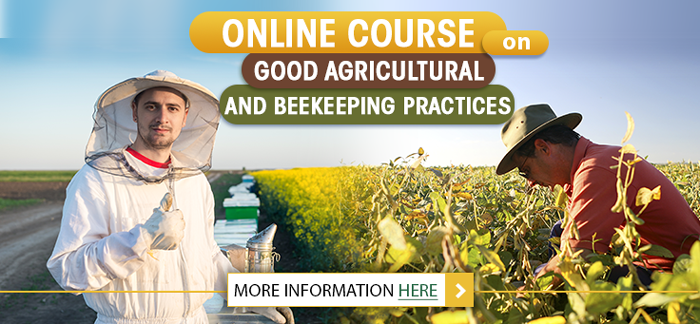How to improve agricultural and beekeeping practices for the health of bees?
Given the growing interest in the health of bees and pollinators in general, CropLife Latin America is launching this course that promotes communication and cooperation between beekeepers and farmers. Available at www.croplifela.org
September 20, 2017-. Farmers, agricultural engineers, agricultural technicians, beekeepers, authorities and all those interested in protecting the health of the pollinators will be able to offer the course entitled Good Agricultural and Beekeeping Practices for Pollinators Health for free.
In three modules, the course provides information on the mutual benefit of agriculture and beekeeping as complementary activities for a good quantity of crops, addresses the factors that can affect the health of honeybees and provides a broad list of activities so that beekeepers and farmers adopt new habits that protect bees, one of them, and perhaps the most important, is greater communication and cooperation between the two activities.
Although there are many factors that can affect the health of pollinators, apiculture and inadequate agricultural practices are practically the first cause that provokes losses of bees or hives in Latin America. "That is why we bet on education and training, because we are convinced that with better habits farmers and beekeepers can protect bees and have a more productive relationship," says José Perdomo, president of CropLife Latin America.
We have identified that in many Latin American countries, there is no communication between beekeepers and farmers. This situation often occurs for cultural reasons, especially in areas where there is fear among the population of Africanized bees. This causes some beekeepers to decide not to tell their neighbors about the location of their hives. As a result, we have accidents involving bee losses, because farmers make pesticide applications to protect crops from pests without knowing that their neighbors have beehives nearby, adds Perdomo.
Crops such as strawberries and avocado are highly dependent on pollination. Their productivity can increase up to 35% with good pollination. At the same time, the bees that pollinate these crops receive nectar and pollen from their flowers as food. This shows the winning relationship that can exist between beekeepers and farmers.
It is important for farmers to know the pollinators who live on their farm, land, plot, or site, learn from their habits and protect them with live fences of flowering plants that provide food. Beekeepers should know what type of crop is grown in their region, ensuring that the location of their hives meets the minimum requirements of food for their bees, sanitary control of hives to prevent varroa, the main enemy of bees.
Below are some data:
- Pollinators are required to conserve biodiversity, 90% of all plants that bloom depends on animal pollination.
- 1/3 of the world's food crops depend on pollination.
- Since 1995, honeybee populations have increased by 26%.
- Many factors affect the pollinators health, climate change, habitat reduction, varroa mite, bad beekeeping and agricultural practices, among others. What is indoor pollination, what are the benefits of good pollination, how climate change affects bees, what crops are highly dependent on pollination, why beekeepers should inform authorities of the exact location of their hives? Find out about this and much more in the course entitled Good Agricultural and Beekeeping Practices for Pollinators Health at www.croplifela.org
In the virtual courses platform of CropLife Latin America, more than 11,000 people have been trained in the last 5 years, in topics related to Good Agricultural Practices and in the responsible handling of pesticides or phytosanitary products.
















